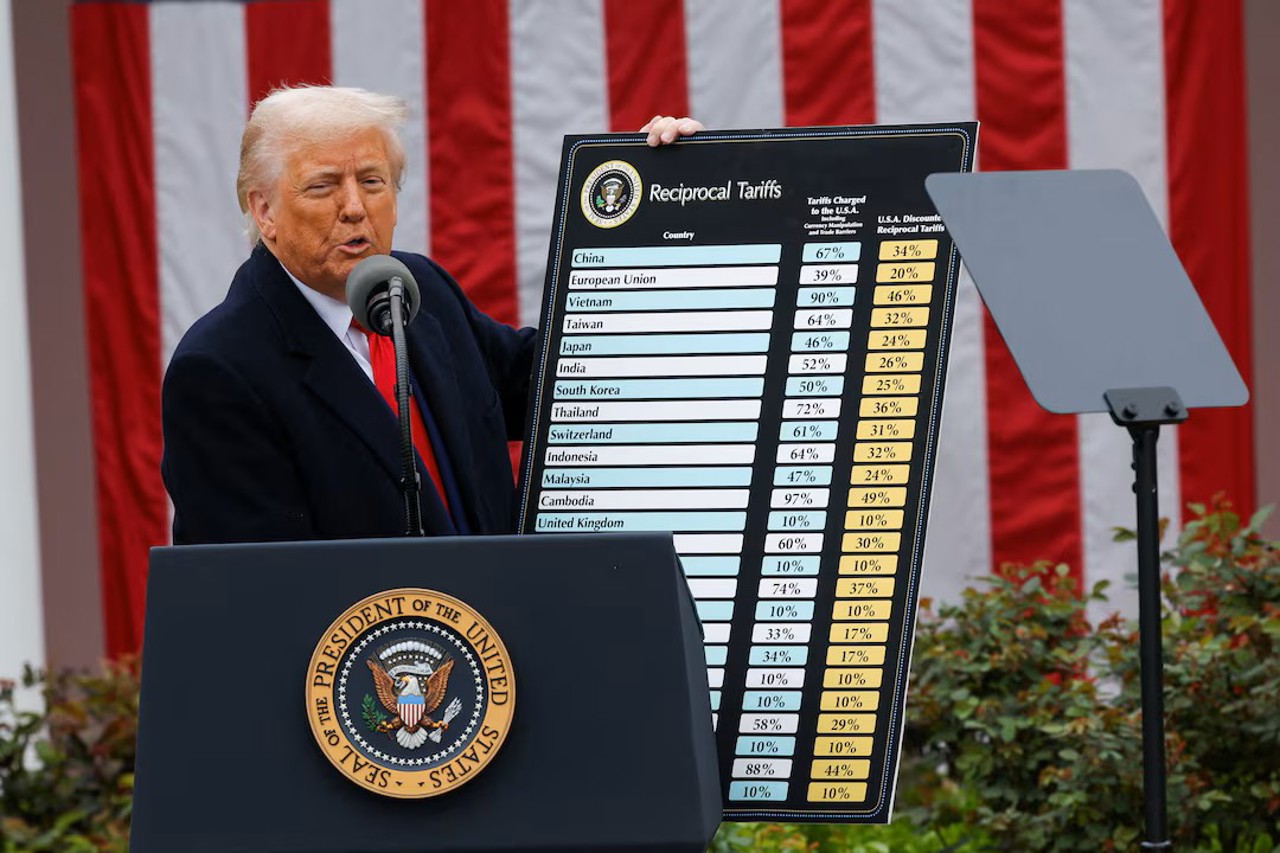Trump announces major tariff hike on U.S. imports

The United States has announced a significant increase in tariffs on most imported goods.
President Donald Trump declared on Wednesday, in a speech at the White House Rose Garden, the imposition of a general 10% tax on foreign goods, along with additional tariffs on dozens of countries, including traditional U.S. allies, Reuters reports.
Moldova is among the countries affected by the new measures, facing a 31% customs duty on its exports to the American market. This tariff is one of the highest announced. Russia and Mexico were not included in the list of additional tariffs.
China, the world’s second-largest economy, faces a total tariff of 34%, while the European Union (EU) will pay 20%, and Japan—24%. The measures will be implemented in two stages: the base 10% tax will take effect on April 5, while the additional tariffs will be enforced starting April 9.
Donald Trump declared April 2 "America’s Economic Liberation Day" and argued that this measure would restore the United States’ financial sovereignty.
“This is a game-changer, not just for the U.S. economy, but for the global economy at large,” stated Olu Sonola, director of research at Fitch Ratings. According to him, the effective import tax rate in the U.S. has surged from 2.5% in 2024 to 22% at present—a level unseen since 1910.
Meanwhile, Trump also signed an order eliminating the "de minimis" rule, which allowed goods valued under $800 to be imported duty-free, particularly from China and Hong Kong. This measure, which takes effect on May 2, has been justified by the U.S. administration as a necessary step to combat fentanyl trafficking.
The American president’s decisions have been met with concern in international markets. Japan’s Nikkei stock index hit its lowest point in eight months, while European and U.S. markets suffered significant losses. Since mid-February, U.S. stocks have lost approximately $5 trillion in value.
International leaders did not delay their responses. Italy warned of the risk of a trade conflict that could weaken the West, while Japanese officials described the measures as "deeply regrettable." In the U.S. Congress, even some Republicans voiced concerns, with the Senate voting to repeal tariffs on Canada—a measure unlikely to pass in the House of Representatives.
Despite criticism, the Trump administration maintains that the new tariffs will boost American manufacturing jobs. "We have been robbed and exploited for decades," the president stated.
Translation by IUrie Tataru






